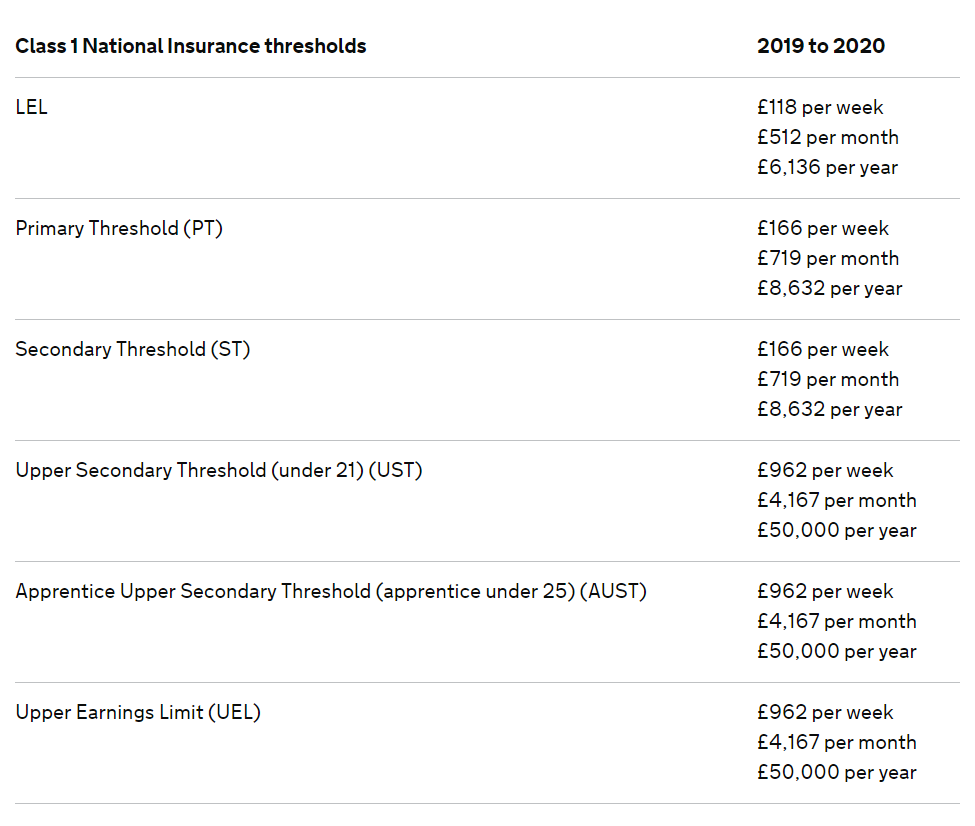
Personal National Insurance Rates 2018/19
—
Rabu, 13 Mei 2020
—
Personal insurance
Do I need to pay National Insurance? For the 2020-21 tax year, employees must pay National Insurance is they earn more than £9,500 in the year. This is up from £8,632 in 2019-20 and £8,424 in 2018-19. Self-employed workers will pay Class 2 contributions if they earn more than £6,475, in addition to Class 4 if they earn more than £9,500.. Self-employed National Insurance rates. If you're self-employed, you could pay two types of National Insurance. You pay Class 2 contributions if you're self-employed, which are a flat rate of £3.05 per week in 2020-21, up from £3 per week in 2019-20..
UK PAYE Tax Rates and Allowances 2018/19 We have published a quick reference to the significant changes to the tax rates and bands, personal tax allowances and national insurance figures which come into effect from April 6th 2018.. National Insurance (NI) is a fundamental component of the welfare state in the United Kingdom.It acts as a form of social security, since payment of NI contributions establishes entitlement to certain state benefits for workers and their families.. Introduced by the National Insurance Act 1911 and expanded by the Labour government in 1948, the system has been subjected to numerous amendments ....